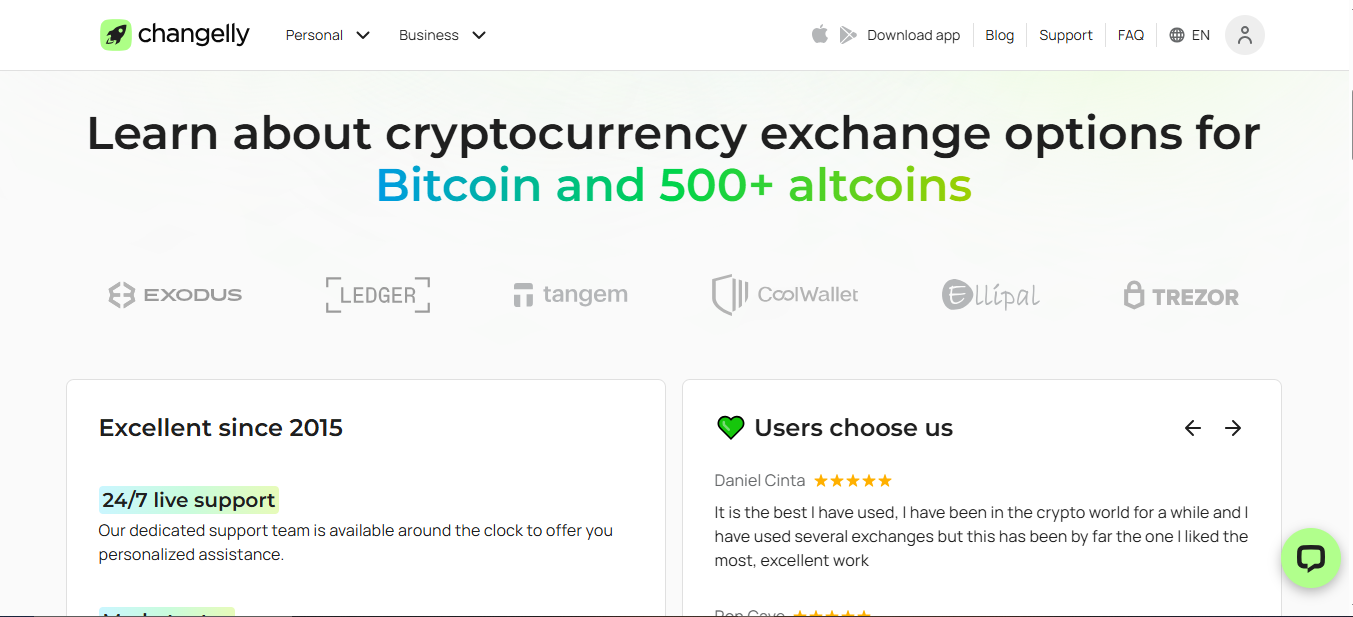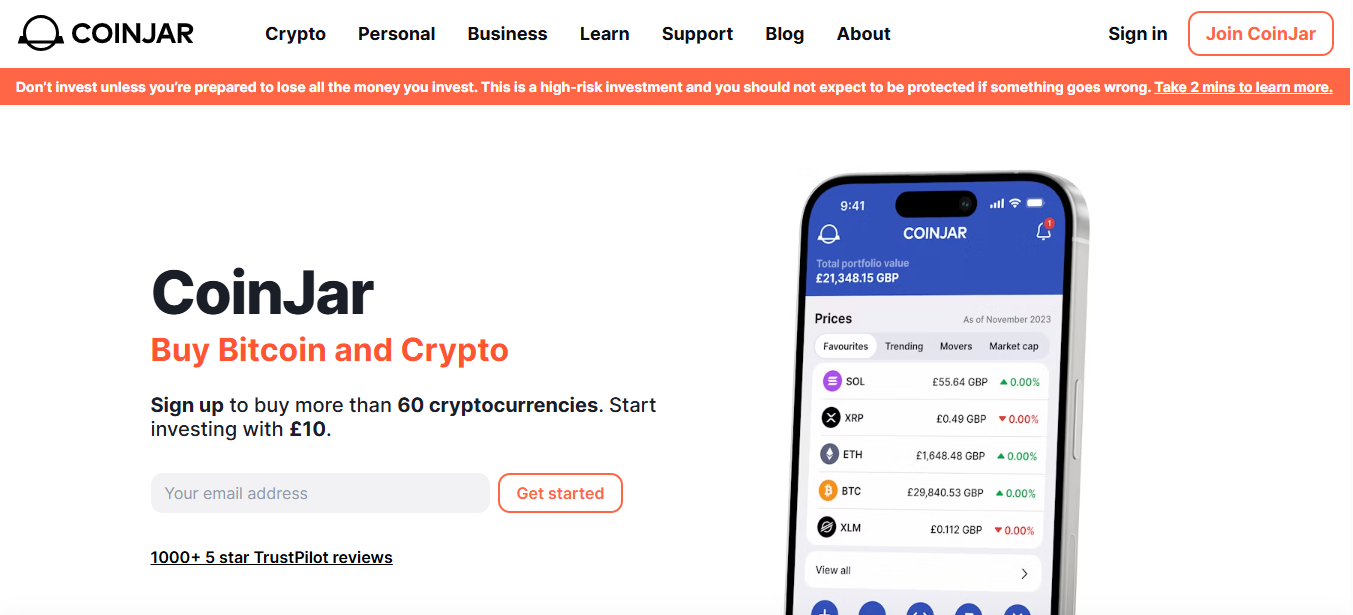The use of credit cards to purchase cryptocurrency in the UK has grown significantly, reflecting a broader trend toward simplifying crypto access for everyday users. As digital assets gain mainstream traction, credit cards are emerging as a familiar and immediate bridge between traditional finance and decentralised technology, particularly for individuals new to the space. Recent data indicates that credit-funded crypto purchases accounted for 14% of all investor activity last year, up from 6% in 2022. This approach has become especially attractive among those seeking speed and convenience. Many users opt for credit cards when looking to make quick, low-barrier purchases, often in response to market movements or short-term opportunities. For others, the ability to invest small amounts without the friction of bank processing times or high transfer minimums makes credit card payments a more accessible and manageable option. While the method is not without its drawbacks, such as additional charges or financial risks, it remains a preferred route for those prioritising immediacy and ease over long-term cost efficiency.
This article provides an overview of how to buy crypto with credit card in the UK, with a focus on security and regulatory compliance. It outlines the end-to-end process, from selecting a reputable platform to completing the transaction, while also addressing key considerations such as platform verification, transaction fees, and risk management. Let’s get started.
Is Buying Crypto with a Credit Card Legal in the UK?
At present, buying crypto with a credit card is legal for retail investors in the UK. However, the practice is shaped by a number of regulatory developments and institutional decisions that impact how, when, and where such transactions can occur.
The foundation of legality lies in the UK Financial Conduct Authority (FCA)'s broader stance on cryptocurrency. While the FCA does not classify cryptocurrencies as legal tender, it recognises them as exchange tokens and permits their purchase and trading within the UK, provided that the platforms facilitating these transactions are registered and compliant with Anti-Money Laundering (AML) and Counter-Terrorist Financing (CTF) regulations. The FCA’s register of cryptoasset firms, introduced in 2020, mandates that platforms operating in the UK must meet specific compliance standards, offering a layer of consumer protection and oversight.
Buying cryptocurrencies with a credit card, however, became more scrutinised in January 2021, when the FCA banned the sale of crypto derivatives and exchange-traded notes (ETNs) to retail consumers. While the ban did not apply directly to buying actual cryptocurrencies like Bitcoin or Ethereum, it set a precedent that reinforced the FCA’s cautious stance on speculative crypto-related activity. In response to rising consumer debt and market volatility, some UK banks such as HSBC, Santander, and NatWest imposed restrictions or outright bans on credit card transactions involving crypto exchanges, citing concerns over fraud, money laundering, and customer risk exposure.
Despite these institutional controls, purchasing crypto with a credit card remains accessible through several FCA-registered exchanges and platforms that allow Visa or Mastercard transactions. This method appeals particularly to individuals who prioritise ease of access, even if it means incurring higher transaction fees or facing spending limits imposed by card issuers or exchanges.
The Latest News on Crypto Purchases with a Credit Card in the UK
Regulations surrounding crypto purchases in the UK are currently evolving, with particular focus on credit card usage. In a recent policy move, the Financial Conduct Authority (FCA) proposed a ban on the use of credit cards and other forms of borrowed money for purchasing cryptocurrency. This proposal forms part of a broader initiative to enhance consumer protection in a market that has witnessed a sharp rise in risk-driven investment behaviour. Data cited in recent reports showed that the number of UK retail investors using borrowed funds to buy crypto has more than doubled in the last year, reflecting a growing trend of high-risk financial exposure in pursuit of short-term gains.
The FCA has expressed concern that consumers purchasing volatile digital assets on credit are significantly more vulnerable to financial harm, particularly in instances of market downturns. The regulator believes that banning credit card-based purchases will help reduce the incidence of debt accumulation among retail investors and prevent losses that could extend beyond the initial investment. While this measure may limit access to crypto for some users, especially those who favour convenience and immediacy, the FCA maintains that the long-term benefit lies in encouraging more responsible financial behaviour.
However, the proposed restriction does not apply to stablecoins issued by FCA-authorised firms, suggesting a nuanced approach that differentiates between high-risk and lower-risk digital assets. In addition, in a move to balance consumer protection with market innovation, the FCA is considering lifting the current ban on crypto exchange-traded notes (ETNs) for retail investors. This would allow access to regulated products linked to cryptocurrencies such as BTC and ETH through established investment platforms, providing retail investors with new opportunities under stricter regulatory oversight.
The consultation period for the proposed rules remains open, with final decisions expected later in the year. If implemented, the credit card ban could reshape how UK retail investors engage with the crypto market.
5 Best Platforms to Buy Crypto with Credit Card in the United Kingdom
Uphold
.jpeg)
Uphold, founded in 2015, is a UK-friendly platform offering access to over 250 cryptocurrencies, plus stocks and metals. This versatile financial platform offers a one-of-a-kind “Anything-to-Anything” trading strategy that enables asset conversion between different asset classes. It boasts an easy-to-use user interface, making it a good choice for beginners. Uphold is regulated by the FCA, adding a layer of trust for UK traders.
Pros
- Anything-to-Anything trading feature, which allows users to exchange any asset for another seamlessly
- Supports a plethora of asset classes
- Offers a transparent fee structure
- Friendly user interface
Cons
- Limited advanced trading features
- Trading fees for some assets can be expensive
Fees and Minimum Deposit
Trading Fees: From 0.2% to 2.95% depending on the assets you trade
Minimum Deposit: Has a minimum deposit of 10 USDT
Best For: Beginners wanting a multi-asset platform with transparency
MEXC

MEXC offers purchasing via credit and debit cards, but only for users who have completed advanced KYC. Card payments (Visa/Mastercard) incur a fee of approximately 2%, and processing typically completes within minutes via OTP authorisation. Users gain access to over 2,500 cryptocurrencies, including Bitcoin, Ethereum, and numerous altcoins.
Changelly

Changelly enables instant purchases via Visa and Mastercard through partners like Simplex and MoonPay. KYC (ID, selfie, proof of residence) is required, and there are no stated UK-specific restrictions. Fees are competitive but may include extra card-issuer charges. It offers access to a wide range of leading cryptocurrencies through its integrated fiat on-ramp service.
CoinJar

CoinJar supports UK-issued Visa and Mastercard, as well as Apple Pay and Google Pay for its Instant Buy service. One-off purchases attract a flat 2% fee, while recurring transactions are charged at 1%, with full KYC verification required. Card transactions are generally processed instantly; however, a seven-day “reserved balance” period may apply to first-time purchases or those made via Apple Pay or Google Pay. It offers access to over 60 digital assets, including major cryptocurrencies such as BTC, ETH, and XRP.
Gemini

Gemini accepts card purchases (Visa/Mastercard) with fees that vary depending on purchase size and payment method. KYC (ID, selfie, address) is required, and the exchange supports over 70 cryptocurrencies, including major tokens like Bitcoin, Ethereum, and Solana, offering both speed and a high security standard.
6 Steps to Buy Crypto with a Credit Card in the UK
- Choose a reputable and FCA-registered cryptocurrency exchange that supports credit card payments.
- Create an account and complete the required identity verification (KYC) process.
- Navigate to the “Buy Crypto” or equivalent section on the platform.
- Select the preferred cryptocurrency and enter the purchase amount.
- Add credit card details and confirm the payment, including any applicable fees.
- Securely store the purchased cryptocurrency in a private wallet or the exchange’s custodial wallet.
FAQs
What is the Fastest Way to Buy Crypto with a Credit Card in the UK?
The fastest way to buy cryptocurrency with a credit card in the UK is through a regulated centralised exchange that offers instant purchase features. These platforms typically support immediate credit card transactions, enabling users to acquire crypto within minutes after completing identity verification. The process is streamlined, combining automatic card processing, integrated digital wallets, and real-time market pricing. This method is ideal due to its end-to-end efficiency, minimal manual steps, and widespread availability across major crypto platforms operating within the UK regulatory framework.
Is It Possible to Buy Crypto With a Credit Card without KYC in the UK?
Buying cryptocurrency with a credit card without completing Know Your Customer (KYC) verification is generally not possible in the UK, particularly on regulated platforms. This is due to strict anti-money laundering (AML) and counter-terrorism financing (CTF) regulations enforced by the Financial Conduct Authority (FCA). Most reputable exchanges require users to submit identity verification documents before enabling credit card transactions.
What is the Main Alternative to Buying Crypto with a Credit Card?
A primary alternative to purchasing cryptocurrency with a credit card is using a bank transfer. This method is widely regarded as the top choice due to its lower transaction fees, higher transfer limits, and reduced risk of incurring interest charges or cash advance fees. Most regulated crypto exchanges in the UK support bank transfers, offering secure and direct account funding. For those prioritising cost efficiency and regulatory transparency over speed, bank transfers provide a reliable and widely accepted means of acquiring digital assets.
Conclusion
For crypto holders, purchasing digital assets with a credit card offers a convenient and accessible entry point into the market. As outlined in this guide, while the method prioritises speed and convenience, it is essential to remain aware of the associated fees, regulatory considerations, and institutional restrictions. Understanding the necessary verification processes, selecting FCA-registered platforms, and staying informed about ongoing policy developments are critical steps toward making secure and compliant transactions. By approaching credit card-based crypto purchases with informed decision-making and responsible financial practices, individuals can take advantage of market opportunities without compromising safety or regulatory alignment.





 usdt
usdt xrp
xrp

